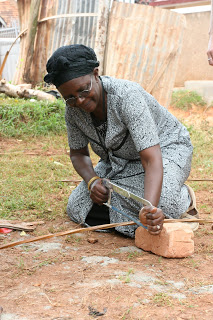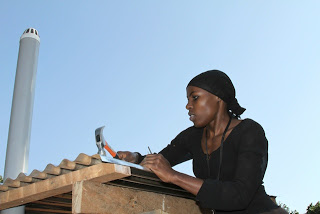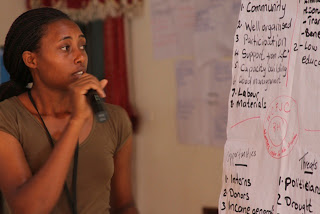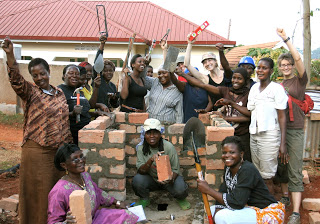small tools, BIG transformation.
This month, we welcomed back the Africa Team from the 2011 East African Women and Water Training in Uganda. This was our third Global Women and Water Initiative (GWWI) Training, following the 2008 and 2010 Trainings in Kenya and Ghana. GWWI began in 2008 as a collaborative venture between Women’s Earth Alliance, A Single Drop, and Crabgrass and is currently a program of Women’s Earth Alliance in partnership with Crabgrass. In line with our values of recognizing the importance of home grown and locally-led solutions, GWWI builds partnerships with Africa-based organizations and African women trainers to undertake its training programs. In Uganda, we worked alongside a Uganda-based organization, iCon Women and Young People’s Leadership Academy, to amplify the voices and inclusion of grassroots women in the WASH sector. Furthermore, GWWI knows the power of building alliances with men, and our training programs invite men to support this vision. The GWWI Trainings create a space for women to connect, engage in dialogues around leadership and climate change, and develop specific technology skills to address issues of water, sanitation, and hygiene (WASH).
In 2011, GWWI featured two complementary trainings—the Advanced and Grassroots Trainings—over a two-week period from July 4-18. We were thrilled to have some former graduates from 2008 participate in the 2011 East Africa Training as trainers-in-training. We also welcomed 10 Fellows—four East African women and six international women—to offer peer support and in the process, enhance their knowledge and understanding of WASH-related issues. The Advanced Training laid the foundation for the strategies that were explored in the Grassroots Training.
Thirty-two women from communities across Tanzania, Uganda, and Kenya, joined the 24 women from the Advanced Training in the Grassroots Training. Over the course of the week, the women learned hands-on WASH technologies, engaged in group sessions, and upon completion of the Training, received seed grants to support the implementation of water projects in their communities. The teams of women representing their communities came to the Training having conducted a basic needs assessment to determine the appropriate technologies to address WASH needs in their communities.
Building on past trainings, participants focused on various aspects of WASH, including sanitation, water access, water quality, and alternative energy. In addition to studying the theory behind these technologies, women learned to construct a ventilated improved pit latrine (or a VIP latrine), a rainwater harvesting system, a biosand filter, and solar cook kits. They also learned games designed for community sensitization and to improve hygiene and sanitation habits. The VIP latrine helps to improve sanitation by providing alternatives to open defecation and poor disposal of human waste, while the rainwater harvesting system allows for the collection and storage of large quantities of rainwater that can be accessed year-round. Biosand filters remove harmful bacteria from water, and the solar cook kits can be used for a variety of purposes, including cooking and pasteurizing water for drinking. The African continent is blessed with incredible natural resources like the sun. Our hope is that the solar cook kits will optimize the abundance of this resource, and in the process, promote the well-being of women and girls who otherwise would be spending their time out of school and walking long distances to collect water and fuel facing the risk of violence.
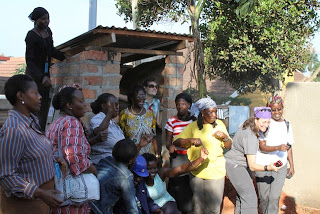
Ventilated Improved Pit Latrine
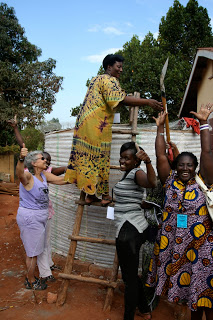
Rainwater Harvesting Tank

Solar Cook Kits

Biosand Filter
